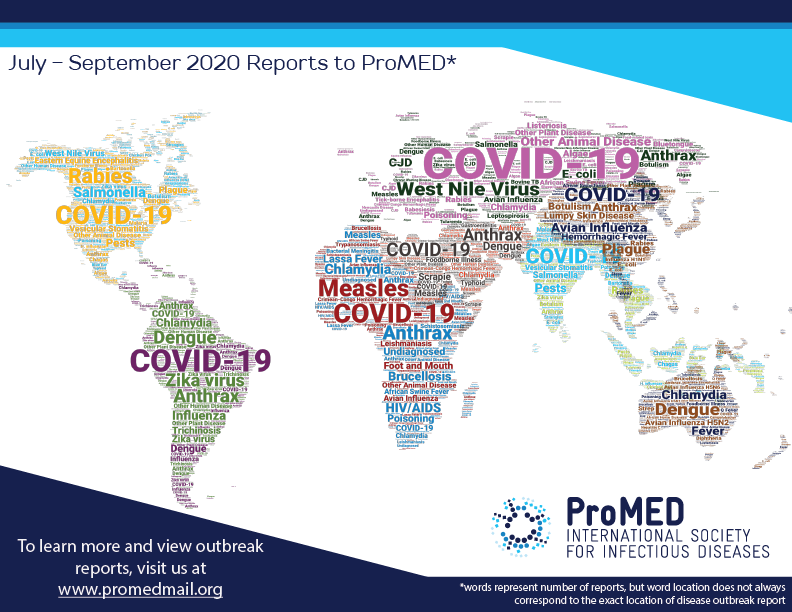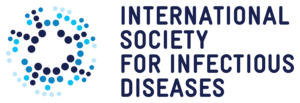ISID publishes annual and quarterly word clouds based on ProMED’s infectious disease surveillance where the size of each word indicates the frequency with which a ProMED report was published on the topic. Click on the image to zoom in.
Note: word size does not indicate the size of an outbreak nor its exact location on a continent.




